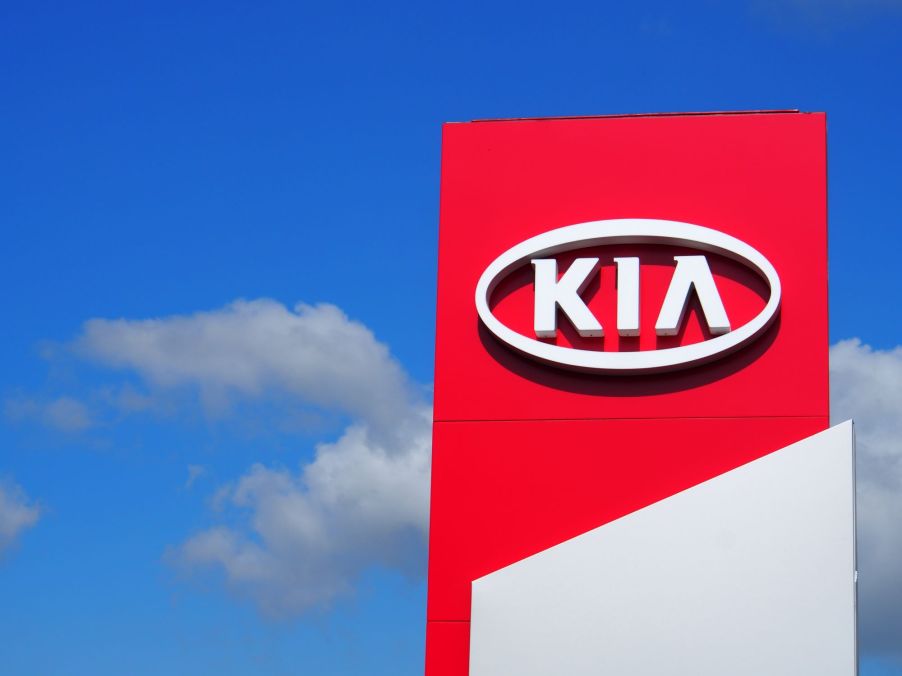
Kia Dealer Slammed With Huge Fine for Deceptive Pricing
Buying cars decades ago was wrought with unknowns for the consumer. It was often the worst experience, especially when used car salespeople were involved. Deceptive pricing, price gouging, and high-pressure sales plagued the process.
Then the internet happened. Consumers were back in the driver’s seat when buying vehicles, armed with pricing and vehicle information before even stepping foot in the dealership. But some dealers didn’t adjust well to losing out on the old way of padding deals. One Kia dealership got slammed with a massive fine due to its deceptive pricing practices. So, what happened, and what do today’s consumers need to know about the industry and current car buying conditions?

The deceptive price lawsuit at the heart of the price gouging conversation
A few years ago, a judge officially ruled that Koons Kia, an Owing Mills, Maryland, dealership, would have to refund all the fees it assessed on customers above the advertised prices. This judgment sparked a public conversation about the practice of padding MSRP pricing with extra fees and shipping charges as a method for increasing margins, according to CarBuzz.
Koons Kia would not be forced to admit guilt in this particular lawsuit. However, the financial penalties could be enough of a hit. The state estimated the total refunds and penalties could easily be up to $1 million, including the $200,000 fine Koons Kia would be required to pay for the Maryland Consumer Protection Division investigation.
The problem lies with the breakdown between the sales price and the MSRP, or Manufacturer’s Suggested Retail Price. Before, when most consumers were programmed to never “pay full price” for a vehicle, the MSRP served a different purpose.
With vehicle shortages and more robust access to information at the consumer level in today’s market, dealers were losing margins on those MSRP-based deals. As a result, some began assessing additional fees. And in Koons Kia’s case, it’s a deceptive pricing practice that cost them significantly.
Dealers stack money onto the MSRP
The temptation to tack on to the MSRP is too great for some dealers. While most dealerships generally avoid such practices, many vehicles are still sold at marked-up prices based on fees and undisclosed charges. According to the dealer’s spokesperson, Beth Kerr, the MSRP pricing had been made available in the vehicle window stickers and within the purchase documents in the case of Koons Kia. But because consumers encountered different pricing online or in ads than when they finalized their purchases, the courts determined it to be deceptive pricing practices.
Kelley Blue Book says automakers take a stand against price gouging with their retailer dealers. Manufacturers including General Motors, Hyundai, Ford, and Subaru have all issued statements or sent official letters to dealerships forbidding the practice of deceptive pricing. Ford’s CEO warned they know which dealers are engaging in the wrongful pricing methods and said “their future allocation of product” will be affected due to this knowledge.
The latest on the auto industry trends
The old saying goes, desperate times call for equally desperate measures. As dealers try to stay afloat in an industry drastically impacted by the pandemic and subsequent microchip shortages, some are crossing the line to improve numbers. The practice itself is officially being condemned by the courts in the Koons Kia lawsuit and by automakers recognizing the alarming trend. Analysts predict the auto market is slowing trending back to normal, but shortages and delays are still affecting the bottom lines.
As of March 2022, KBB shared that the stresses of the microchip shortages and high vehicle demand are starting to ease, albeit painfully slowly. Automakers adjusted to the deficit by eliminating the availability of some vehicle options that require the microchips, including Cadillac, which began shipping vehicles to dealerships without heated seats, heated steering wheels, and some parking assist features. The industry is far from completely righting itself to pre-pandemic supply and demand levels, although analysts are confident those shifts will be felt more readily come 2023.
Deceptive pricing and price gouging at the dealership are still a problem. As a consumer, you can be vigilant by shopping multiple dealers and verifying pricing with the dealer directly before heading to the F&I office. For now, Koon’s Kia is paying the price for its wrongdoing. And it serves as a stern warning to consumers, and other dealerships, as well.


